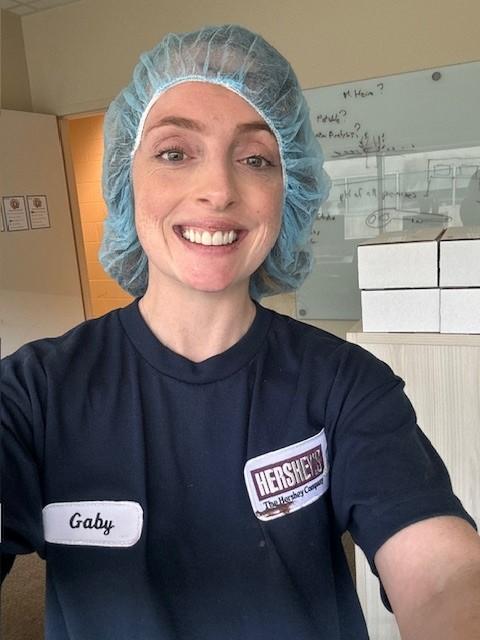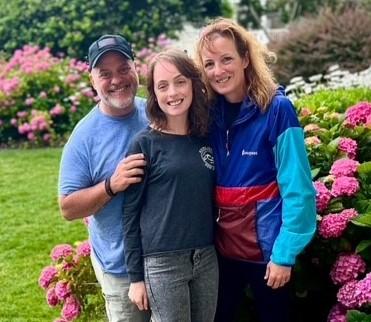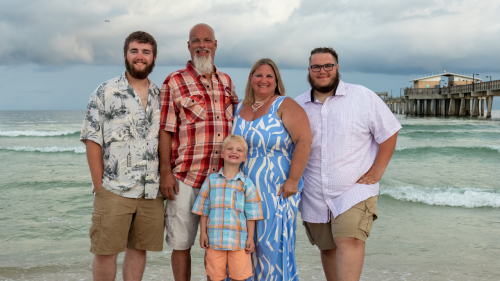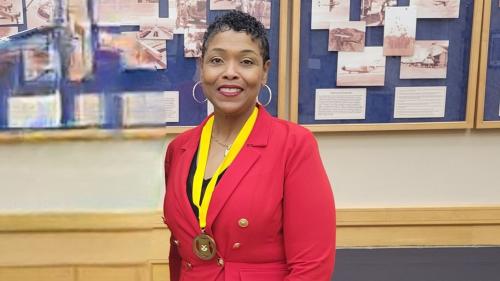

When Gaby Talarico had seizures as a young child, doctors attributed them to fevers and assured her parents that she’d grow out of it. They didn’t have answers, though, as to why she forgot things and couldn’t concentrate. The mental sluggishness affected her academic performance and concerned her mother.
“I grew up a really sick kid. My mom always knew something was wrong. She would take me to all these doctors, and some called her crazy, but none of them ever gave me a diagnosis,” said Talarico. “It really hit home to my mom when I was 8 years old and, halfway through the school year, I couldn't remember my teacher's name.”
A few years later, Talarico, then 11 years old, had to be hospitalized for a severe seizure. That’s when doctors finally started peeling back the layers of her health problems.
Tests revealed she had low calcium due to hypoparathyroidism. Hypoparathyroidism occurs when parathyroid glands, small glands near the thyroid, don’t produce enough hormone to help the body make calcium. The condition causes brain fog, tingling in the body, muscle cramps, and abnormal heart rhythm.
Doctors also diagnosed Talarico with Addison’s disease. In Addison’s disease, the adrenal glands, located on the top of each kidney, don’t produce enough hormones like cortisol, leading to tiredness, muscle weakness, joint pain, stomach problems, low blood pressure, and damage to reproductive organs.
These diagnoses allowed doctors to pinpoint the root of the problem—autoimmune polyglandular syndrome type 1 (APS type 1), also known as polyendocrinopathy-candidiasis-ectodermal dystrophy (APECED), a rare and complex primary immunodeficiency (PI). APS type 1 occurs when the thymus (an immune system organ) doesn’t make working AIRE protein because of a variant in the AIRE gene. This prevents malfunctioning T cells from being weeded out in the thymus and those T cells attack the body’s own healthy tissue, resulting in autoimmunity.

Autoimmunity caused by APS type 1 affects many organs in the body. Talarico’s autoimmunity resulted in problems with her parathyroid and adrenal glands and led to fungal infections, scarring in her kidneys, and ovarian failure.
Once Talarico started on medication, her brain fog cleared, but today she still has Addison-related crises about once or twice a year. These attacks are brought on when there are extreme stressors to the body. Talarico describes it as her body shutting down. She has nausea, vomiting, diarrhea, and cold sweats. To counteract the attacks, she receives a hydrocortisone shot and fluids at the hospital.
“The disease has different manifestations and therefore different degrees of symptoms,” explained Talarico. “I'm very lucky. If you were to talk to me, you'd never know I had anything.”
Talarico, 30, earned her bachelor’s degree in food science from Rutgers University and a culinary degree from the Institute for Culinary Education. Today, she works for Hershey Foods as a senior food scientist, where she produces innovative chocolates for the better-for-you division.
When she has free time, she likes to experiment in the kitchen with new recipes and sometimes leftovers. She documents her creations on her website, www.foodiewithflavor.com, and on Instagram @foodiewithflavor.
“I like making pasta dishes out of stuff in my refrigerator. I grew up Italian, and on Friday nights, we would have clean-out-the-fridge pasta nights. That’s what I’m used to and I’m really good at it,” said Talarico.

She recently joined the board of The APS Type 1 Foundation, a non-profit dedicated to empowering those affected by APS type 1 through awareness, education, and research. Her father founded the organization in 2006, just after Talarico’s diagnosis. The organization offers in-depth information on APS type 1, a patient registry, international symposiums, information on National Institutes of Health (NIH) natural history studies and clinical trials, links to research studies, community activities, and support for families.
“It's nice that people have that resource because we didn’t have it when I was diagnosed. We couldn't find anything on the Internet,” said Talarico. “I’m so excited to be a part of the board because I really want to be an advocate for people.”
Talarico said she’s grateful for the support of her family, friends, and boyfriend. While she acknowledges her condition may cause disruptions in her life, she appreciates that she can live independently and enjoy her favorite activities like kickboxing classes and traveling to new cities.
“I am fortunate. I am happy that I can live a nice, happy, healthy life,” said Talarico. “I try to lean on the positive more than on the things I can’t do. And there aren’t many things I can’t do.”
Sign up for updates from IDF
Receive news and helpful resources to your cell phone or inbox. You can change or cancel your subscription at any time.












